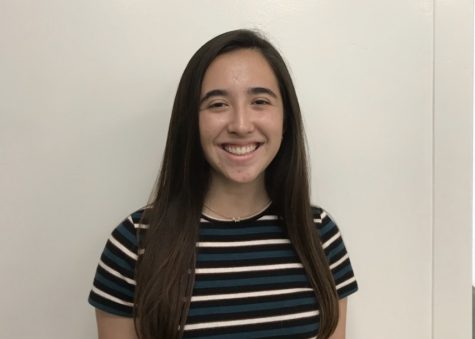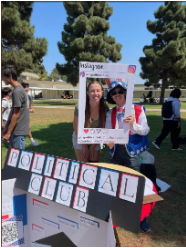Steps To An Inclusive Society
May 29, 2019
Progress was made when gay marriage became legal on June 26, 2015. While this was a historic day for the LGBTQ community, action must still be taken to create a more accepting and inclusive society. Gay marriage is legal, but many members, especially that of youth, still face adversity.
Jessica Shelton (10), a supporter of the LGBTQ community, expressed her point of view, saying, “I feel like kids of the LGBTQ community have the disadvantage of stereotypes. I have noticed that their sexuality becomes their identity, being that the only thing that sets them apart is how they choose to identify.”
LGBTQ youth members not only face adversity in their interactions, but also in education. Believe it or not, only 22 states legally mandate sex education. Eight of those states prohibit a positive discussion of homosexuality and the rest are to primarily focus on heterosexual marriages. Only four require LGBT sex education for the LGBT youth.
Regardless of one’s sexual orientation, race, or beliefs, everyone has the right to an education, to information. Four states is not enough. Educating youth members of the LGBT community can promote inclusion in a school environment, as well as possibly saving the lives of many. The current sex education in our system has proven to be insufficient and a significant cause of sexual health issues amongst young people.
In the 2017 data from the Youth Risk Behavior Surveillance (YRBS), 46% of all sexually active high school students and 48% of male students who had sexual contact with other males did not use any protection.
Along with this, only 9% of high school students have been tested for HIV and among the male students who had sexual contact with other male students, only 15% have been tested. Not using protection and not getting tested regularly can only make matters worse; HIV and STD’s can spread unknowingly. More education on these less touched upon topics could raise awareness and help these shocking statistics.
What has held many institutions back from introducing this into education systems is the fear of controversy with religious members of the community. While their opinions on the matter are valid, the LGBTQ are just as deserving of understanding their bodies as the cisgendered.
Oliver Pearson(10), a transgender member of the LGBTQ community, agreed, saying, “Having sex education for LGBTQ teens should overrule religious beliefs in my opinion because it affects physical health. Gay teens are not going to know how to prevent STD’s.”
Public health should surpass beliefs. We are all human and we all deserve equal access. The opportunity for education and overall better public health should be supported across the board.
While we do have a strong education system on our shoulders, we should strive to better it for all, and in doing so, connect our people.






